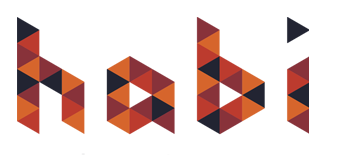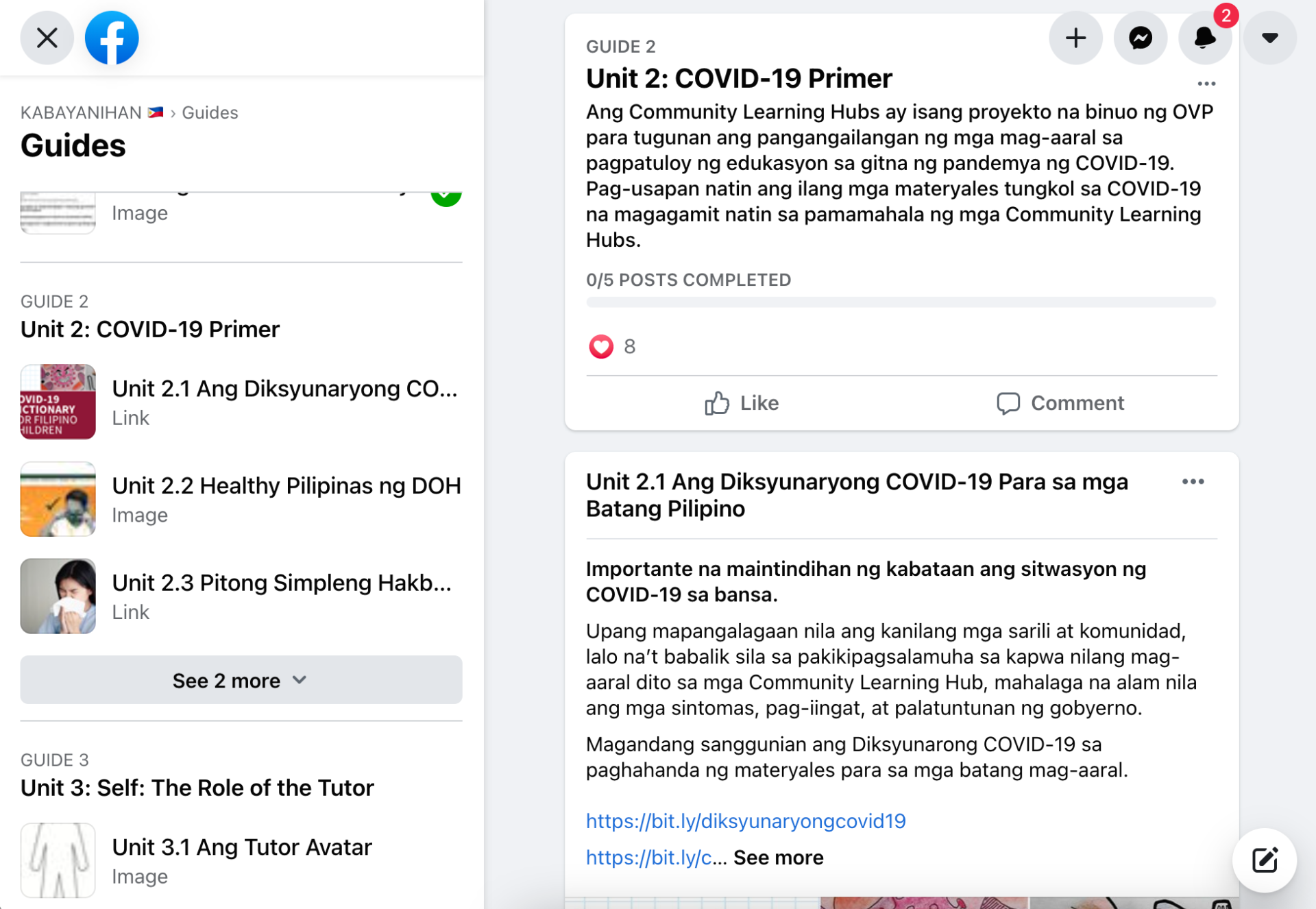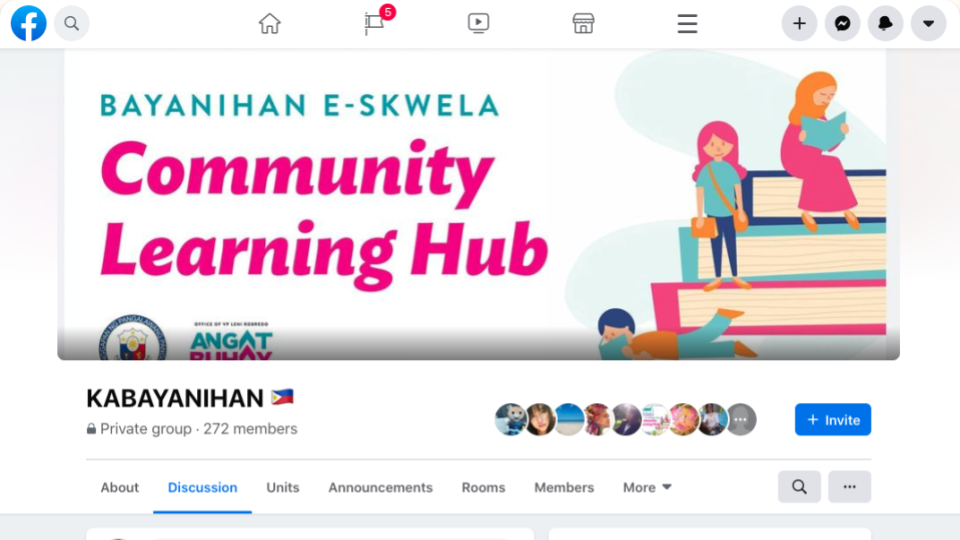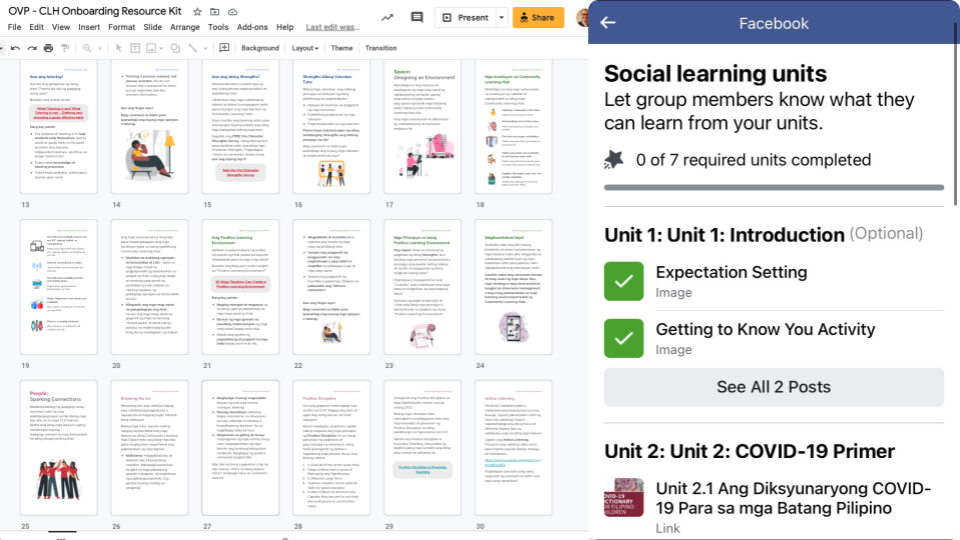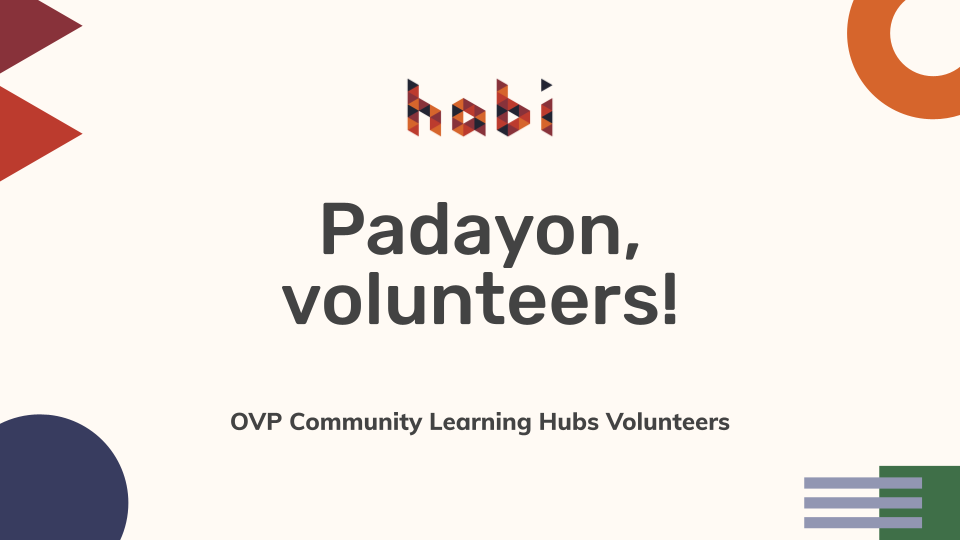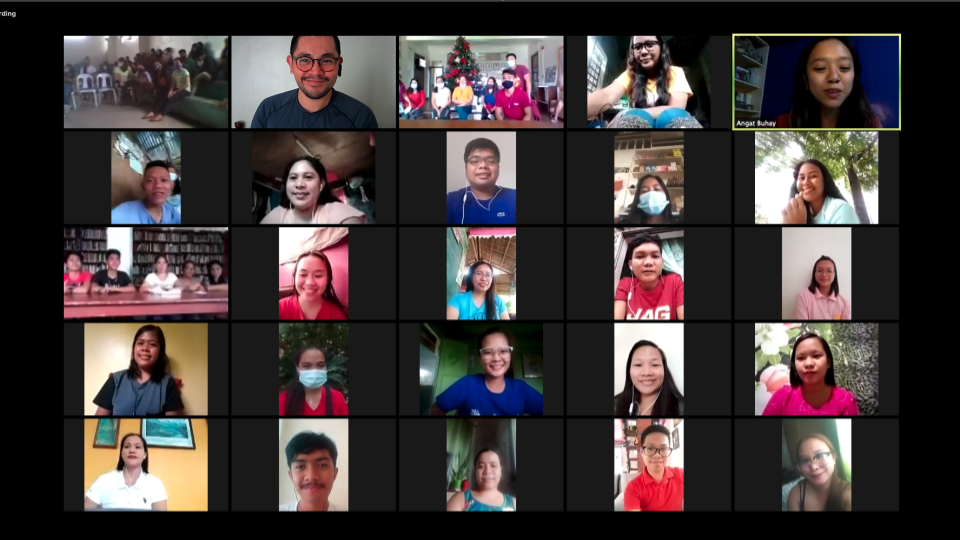Community Learning Hubs (CLH) are learning facilities that provide safe and conducive environments for learners who have no access to educational materials, learning resources, or learning environments at home. It is a project by the Office of the Vice President (OVP) to support learners as they transitioned to remote learning during the 2020 community quarantines. We collaborated with the OVP to design asynchronous learning units, as well as a live workshop to empower volunteer tutors in becoming more reflective educators in their respective hubs.
Designing for Volunteers
Rather than designing and creating content from scratch, the team curated resources and existing material, and contextualized them to fit the needs of the project. The learning units covered topics such as the DepEd’s Education Approach for the new school year, how to manage the CLHs, how to conduct tutoring and facilitate learning for the students visiting the CLHs, and how to think about their roles in the CLHs and the surrounding community.
The goal was to make the content light but meaningful, allowing the OVP to build on it further should they need to. Accessibility was another key consideration; as a low cost initiative composed of volunteers across the country, the learning experience should be mobile-friendly, and hosted on an accessible platform. The onboarding materials were hosted on Facebook Groups, because the OVP was already using Facebook groups to organize the volunteer network, and because learning units could be used to organize the material.
The team also designed and facilitated a live workshop for the participants near the end of the onboarding program. The workshop activities were designed to be more reflective and aspirational, helping the participants process their learning journey and articulate the impact they wanted to create through the program.
The Impact
The learning experience was well received, with 92.7% of the units completed in one month. Many of the volunteers mentioned after the workshops that their main takeaway from the program was the importance of continuous self-discovery, and learning how they might use their unique strengths and talents to continue being of service to others.
